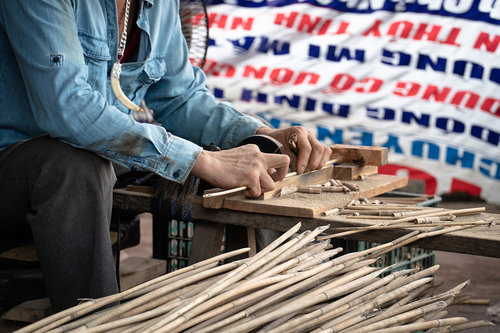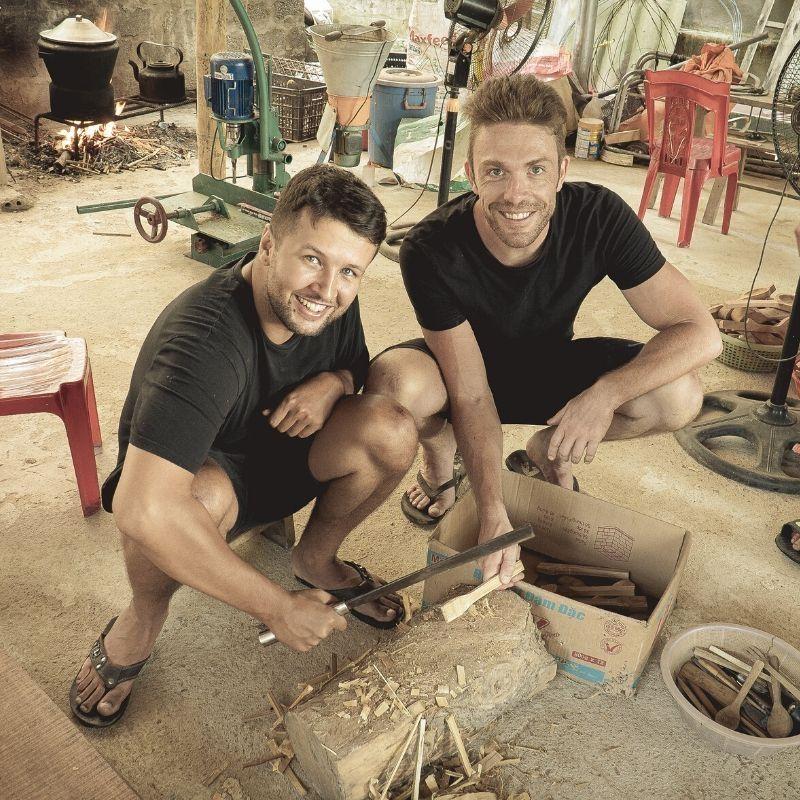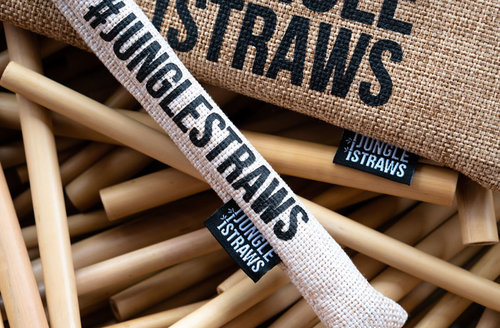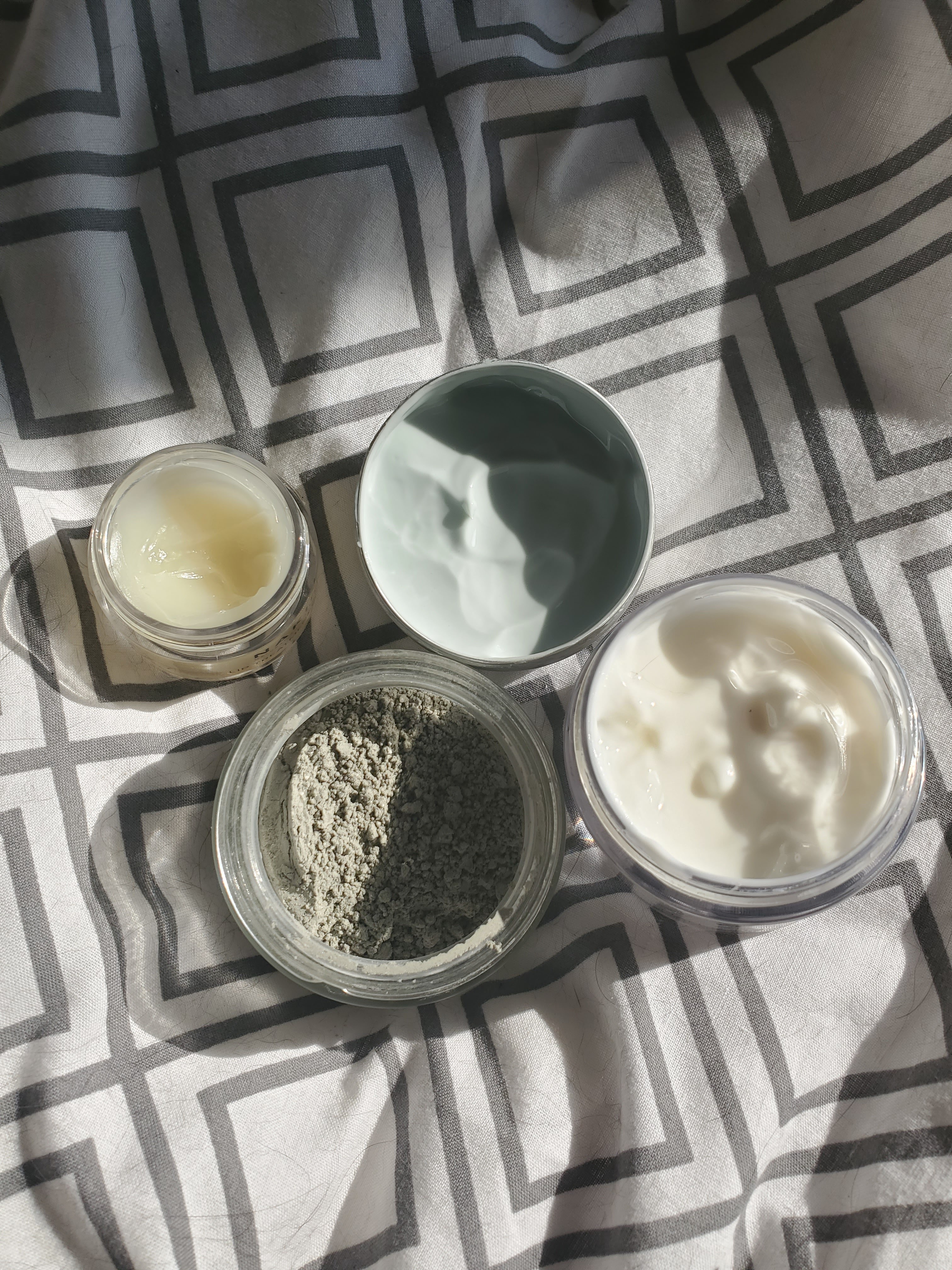Greenwashing. With consumers pushing for more sustainable products, companies have gotten savvy and learned that they can slap on some buzzwords to mislead people and increase profits. But how can we spot these marketing tactics??
I've been sharing a ton of plastic free brands and products lately, but also spending more time picking apart what it means to be ethical and eco friendly. Well, today I'm thrilled to share the latest guest post contribution to The ecoLogical, a piece that digs deeper into the issue of greenwashing! Please welcome Jungle Straws (who you may recognize from my Low Waste Living roundup!) and learn all about how to spot those big little lies put out by marketing companies, learn what to look for when spotting greenwashing, and discover a whole host of questions you can ask brands to uncover whether they are just swish branding or truly for the planet and the people...
As an eco-friendly products business, we love that more and more people are making the switch to a zero-waste lifestyle. We’re also delighted that more consumers question where their products come from - whether that’s food produce or home products.
Organic beauty products, locally-grown produce, hand-crafted rather than mass-produced gifts, and ethical clothing brands in place of fast fashion. It’s all music to our green ears!
But, what we really don’t like is greenwashing.
Greenwashing is where companies tout themselves as being environmentally-friendly when in actual fact their policies or products are flawed.
As an authentically sustainable and ethical creator of eco-friendly products, we have noticed that some brands promote themselves as eco-friendly, ethical and responsible. However, without naming names, we’ve come to recognise that this isn’t always the case…. That’s why we wanted to tell you what to look out for when you’re browsing.
How to spot fake eco-friendly products
In general, a truly sustainable company will be motivated by the following principles:
Transparency: A truly authentic company is an open book. They’ll provide heaps of information about their products and creators via their website, blog and any social media channels.
Earth-friendly: The whole package is as low waste as possible, from the production of the product itself to the packaging it’s shipped in.
Ethical business methods: Look for a company who put the products over profit, quality over quantity. You want to know that they’re delivering fair wages to everyone in their supply chain. At the same time, workers should be treated fairly and not working relentless hours in order to sell more products.
Fair pricing: An ethically-minded business will not inflate their costs to consumers. If a brand has frequent sales, they’ve probably over-produced, overpriced, and now they’re trying to incentivise consumers to make impulse purchases.
I’ll go over these in more detail for you below.
Look for a brand story
If you want to spot the telltale sign of an authentically green company, we recommended looking closely at their background. Sustainable and eco-friendly companies are proud of their heritage and they love to share the tale behind their conception.
Scout around on their website for specific details about where the products are sourced from. A genuine company will want to share the journey of the product with you. That might be information about how they are tested and footage of the products being created.
Whilst we’re on the topic, let me tell you about how we came to found our eco-friendly business, Jungle Straws.
Jungle Straws was conceived two years ago by myself and my business partner, Jamie. Like Bryanna, we love to travel and we crossed paths whilst travelling through Mexico. We were both saddened by the amount of plastic pollution we could see, tarnishing the beautiful landscapes and causing hindrance to local communities. So, we put our heads together to find a way that we could create a business to make things easier for travellers to reduce their plastic consumption.
This took us to tropical Vietnam, where bamboo grows in abundance. We started visiting family-run farms and discussing plans for our business idea to create bamboo products. We ended up Thanh Hóa Province - where we teamed up with a farm who would work with us to create handcrafted, organic bamboo straws.
Actually, our next product came to be thanks to serendipity. Jamie and I were visiting the farm when we overheard some talk about a local ‘mountain man’. Word on the street was that the man crafted bamboo cutlery. That sounded to us like the perfect addition to the Jungle Straws family! With our translator, we went off to find the man.
A bumpy, rural road brought us to Ha - a naturist who grew up crafting bamboo products. We didn’t hesitate from asking him to partner with us. Our bamboo cutlery set crafted by Ha was an overnight success, and Ha now oversees an entire workshop of 5-10 carvers. He’s trained them up and pays them a fair wage.
We are passionate about visiting our partner farms and craftspeople throughout the year. It’s important to us that we ensure our workers are being treated properly and are happy, but we also simply enjoy catching up with what feels like our extended family.
Plastic-free packaging
Authentically sustainable companies see the whole picture and ensure that the whole journey of a product is kept green. Before you make an order, check that the company will dispatch their products in eco-friendly, plastic-free packaging. That’s the sign of a true zero-waste business!
When it arrives, make sure you do your bit and recycle the packaging as directed. That’s another sign of possible greenwashing - if they don’t provide concise information about the packaging. If you’re suspicious about the packaging, contact the company with any questions.
Carbon-neutral shipping
Following on from this, check that the company ships using carbon-neutral methods. Most eco-friendly brands do actually offer global shipping because we want to give everyone the opportunity to be more sustainable. But, there are methods that reduce the impact this has on the environment. If a company pushes its overnight delivery, it’s probably not the greenest method.
Charity partners
A respectable and ethical eco-friendly business is motivated by doing good for the planet, in as many ways they can. That means that a great way to spot a genuine company is to see if they are aligned with a charity. This might be an environment foundation or a fund who support developing communities. Donating a fraction of their profit is optional, so it’s a great sign!
Personally, we love the 1% for the Planet movement (our current partner), One Tree Planted and Cool Effect.
Certification
If the company promotes its products using buzzwords like biodegradable, natural and organic - sometimes it’s worth digging a little deeper. Anyone can use these terms, but a legitimate company may also have certification to back them up.
This varies based on the type of product the company creates. For example, our coconut bowls by Jungle Culture are FDA approved and certified by SGS (the world’s largest independent laboratory group). One of the most common certifications available to edible, beauty and clothing products is FairTrade. Meanwhile, cleaning products may be branded by the Environmental Protection Agency’s Safer Choice.
Basically, what you can do is look for any logo on the company’s website and then run a Google search on that particular certification.
It’s worth noting that even companies who are truly authentic might not have a certification. It’s not always possible for small zero waste businesses and brand new start ups to seek certification, due to the prices attached. If a company isn’t certified, don’t assume they aren’t legit. Just take a scour of their website and consider the other elements I’ve shared here on how to spot and avoid greenwashing. Pay particular attention to the brand’s transparency. A warm, passionate and informative brand story will speak volumes of a low-waste business over a certification!
Questions to ask an eco-friendly supplier
If you’re shopping with the above considerations in mind but have any doubts about the ethics of an eco-friendly products business, email them!
These are the types of question you might want to ask an eco-friendly business before you commit to making an order:
- Where are your products made?
Ask for the specific region, not just the country. Especially if it’s a developing country. - Where are your materials sourced from?
Again, you want the name of the region, not just vague descriptions! - Who makes your products?
If the company is advertising handcrafted products - they should be able to tell you more details. - How does your brand ensure the safety, treatment and fair pay of everyone employed in your business?
- What certifications do your products have?
Perhaps the brand doesn’t have certifications. But, if there’s a backstory you can trust and they provide more details about the products, then this should still give you peace of mind.
I’ll add that if customers email a business with these types of questions, it may also prompt them to start sharing more details online. Honest feedback and engagement from prospective customers is a helpful way for us to improve.,
Thank you so much for reading my guest post through to the end. I hope my tips are helpful and give you the confidence to shop sustainably and avoid greenwashing!
There are some incredible zero-waste businesses out there at the moment who are doing great things to save our planet. I’d definitely say you’ll find more authentic companies out there, but it’s really handy to know how to weed out those guilty of greenwashing. My final note is, please don’t forget to review any wonderful and legit brands you discover. It helps other eco-minded consumers when they hear testimonials from genuine customers.
Meanwhile, if you have any other questions about greenwashing and eco-friendly products, leave a message below and myself and Bryanna will get back to you. Good luck with your low-waste endeavours!


















No comments
Share your thoughts!
(No links please!)